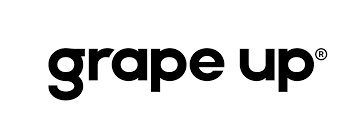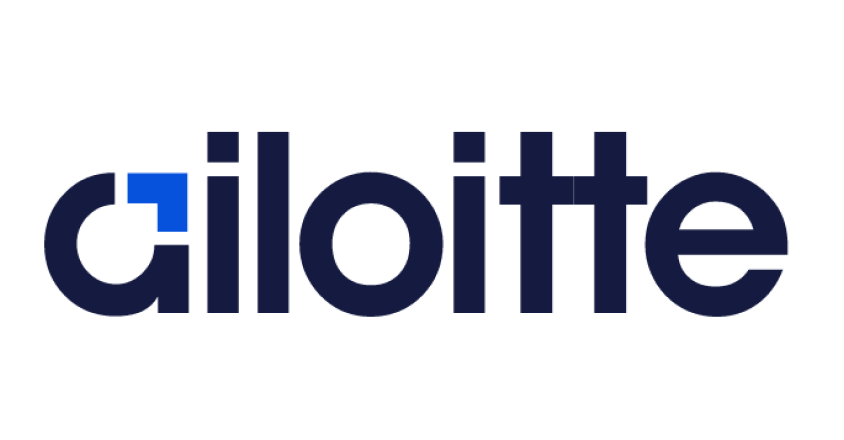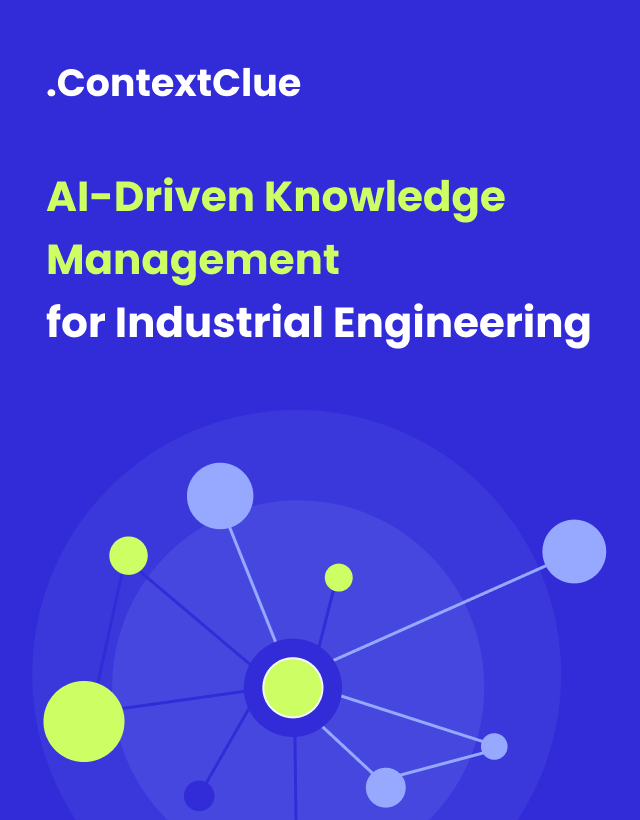
September 22, 2025
Top AI Consulting Companies for Global Implementation (2025)
Author:

Reading time:
12 minutes
AI’s promise is global – but so are its pitfalls. More than 80% of projects fail (RAND Corporation, 2023), and nearly half of enterprises scrapped most of their AI initiatives in 2024 – up from just 17% the year before (S&P Global Market Intelligence, 2024). The difference between success and failure rarely comes down to algorithms: it’s about data integration, process redesign, and change management.
When executed well, AI delivers real outcomes: 93% of businesses using AI-driven automation report cost savings (Deloitte, 2024), and industrial maintenance costs have dropped by as much as 40% (McKinsey, 2024). Yet the average enterprise ROI still hovers at just 5.9% (IBM, 2023), underscoring how fragile implementation can be without expert guidance.
The right consulting partners understand more than just models. They navigate GDPR, CCPA, and regional compliance frameworks, adapt NLP systems across languages, and align AI with legacy enterprise infrastructure.
The firms on the list below excel at measurable, multi-region AI deployments. They’ve proven they can automate processes, sharpen predictions, and scale customer service, all while respecting cultural, regulatory, and technical complexity. These are the partners that turn AI from an experiment into a sustainable global advantage.
Our evaluation was grounded in hard evidence: infrastructure expertise, compliance track record, delivery timelines, and verified client results.
To ensure consistency and rigor, we assessed firms across five core criteria:
-
Technical capabilities
Documented expertise in machine learning, generative AI, NLP, and computer vision, with implementations spanning industries and regions. -
Global experience
Successful multi-region deployments, including navigation of diverse regulatory frameworks (GDPR, CCPA, EU AI Act) and strategies for cultural adaptation. -
Implementation track record
Verified outcomes with measurable ROI, clear delivery timelines, and post-deployment performance metrics-not just theoretical case studies. -
Compliance & governance
Proven ability to design AI systems that satisfy regulatory demands while ensuring data integrity and model performance across jurisdictions. -
Resource management
Capacity to coordinate distributed teams, oversee offshore vendors, and maintain consistent quality across time zones and cultures.
Note: We focus exclusively on specialized AI consulting firms. While global giants like Accenture, PwC, McKinsey, and Deloitte offer excellent enterprise services and need no introduction, this list highlights boutique specialists who bring deep AI expertise and agile execution to complex global implementations.
Disclaimer: Addepto is included in this analysis. Our firm was assessed using the same criteria applied to all other providers. Readers should take this into account when reviewing the findings and evaluate all firms according to their own project requirements.
1. Addepto
Addepto is an AI consulting and data engineering company specializing in scalable, ROI-focused solutions for global enterprises and innovative startups. Its clients include organizations such as Rolls-Royce, Continental, Porsche, ABB, and WGU (read our case studies and Clutch reviews)
With a dedicated focus on Artificial Intelligence, MLOps, data engineering, Generative AI, and Big Data, Addepto designs systems that deliver measurable business impact and support long-term growth.
In addition to client projects, the company develops its own products – such as ContextClue – and has created open-source tools including ContextCheck and ContextClue Graph Builder, all designed in response to real-world challenges and made available to the broader community.

2. GrapeUp

GrapeUp is a software development partner specializing in AI and cloud solutions for the automotive, manufacturing, banking, and insurance sectors. The firm builds modern data platforms, advanced ML infrastructure, and ModelOps workflows, enabling real-time analytics and scalable AI deployment for large enterprises.
Notable projects include telematics-powered car rental optimization, generative AI customer support platforms, and in-vehicle digital product purchase systems with universal payment integration.
GrapeUp also excels in developing banking data systems for multi-market scalability and insurance apps with AI-based driving analysis

3. Miquido

Full-service software company with 12+ years delivering 250+ digital products for Warner, Dolby, Abbey Road Studios, and Skyscanner. Six-year AI specialization with proprietary AI Kickstarter framework for rapid GenAI development.
Services include generative AI content creation, machine learning systems, and computer vision analysis with a focus on user safety and brand protection.
Notable projects:
- Nextbank – credit scoring: 97% predictions’ accuracy, 500 M+ loan applications processed, 2019 Singapore FinTech Awards Finalist
- PZU – 1st Google Assistant implementation in Poland, 6 weeks to deliver the entire project
- Pangea – 3 weeks for full deployment, 90% faster agency profile completion, 95% faster developer profile completion

4. BotsCrew

Founded 2016, specializes in generative AI agents and voice assistants with 200+ AI solutions for Adidas, FIBA, Red Cross, and Honda. Notable deployments: Honda voice agent (15,000 interactions), Red Cross internal GPT assistant (handles 65% of internal questions), Choose Chicago engagement platform (500,000+ visitors).
Notable projects:
- Generative AI voice agent for Honda: 15,000 conversations with the AI voice agent as a part of PR campaign for the Honda HR-V launch in Australia.
- Internal GPT-powered Agent for Red Cross helps Red Cross employees save time and money by covering 65% of internal repetitive questions.
- GPT-based website AI agent for Choose Chicago engaged more than 500k website visitors.

5. Innowise

Data management and intelligent application specialist focusing on regulatory compliance and sustainability. Develops future-proof data ecosystems through comprehensive governance frameworks.
Notable projects:
- Renewable energy asset monitoring and maintenance
For the energy sector, Innowise has engineered sophisticated monitoring solutions for wind and solar farms. These platforms optimize energy production, mitigate operational risks, and provide crucial data for managing the construction and maintenance of turbines. - ESG data migration and cloud integration
Innowise developed a resilient, cloud-based platform for a prominent climate innovation organization. This solution streamlined the migration and integration of complex ESG data, significantly enhancing the client’s reporting and analytical capabilities. - AI-powered logistics and supply chain optimization
For a major logistics provider, Innowise constructed an advanced optimization platform. The solution features AI-driven route planning, real-time analytics for operational visibility, and integrated sustainability tracking to monitor and reduce environmental impact.

6. SCAND

SCAND is a comprehensive Warsaw-based software development company with over 25 years of proven experience delivering full-spectrum IT solutions to global enterprises, and more than 700 successful projects.
Building on their decades of traditional software development expertise, SCAND has expanded its service portfolio to include AI-powered solutions and machine learning integration as a natural evolution of their technological capabilities.
The company now leverages artificial intelligence to help businesses operate more efficiently, combining their extensive experience in enterprise software architecture with modern AI technologies including predictive analytics, intelligent automation, natural language processing, and computer vision.
This combined expertise enables SCAND to deliver secure, scalable, and tailored solutions that integrate AI capabilities into existing business infrastructure.

7. SoluLab

Global AI development company with 250+ developers across 5 offices serving 15+ countries. Combines domain expertise with technical capabilities using agile development. Portfolio includes Gradient (image/text generation), InfuseNet (data empowerment with GPT-4), Digital Quest (AI travel recommendations).
Notable projects:
- Gradient: Gradient is an advanced artificial intelligence platform designed to seamlessly generate images and text descriptions through a sophisticated combination of stable diffusion and GPT-3 integration.
- InfuseNet: Discover data empowerment with the InfuseNet AI platform. Seamlessly import from texts, images, documents, and APIs, infusing operations with advanced models like GPT-4, FLAN, and GPT-NeoX. Illuminate decision-making, unearth insights and amplify productivity while ensuring data security. Reshape how businesses harness data for unprecedented growth.
- Digital Quest: Digital Quest is a travel business that partnered with SoluLab, an innovative software development company, to create an AI-powered ChatGPT that provides users with seamless communication and enhanced engagement for travel recommendations.

8. BigBear.ai

Decision intelligence solutions across government, defense, travel, transportation, manufacturing, and healthcare. Key projects: Denver International Airport biometric boarding, $165M U.S. Army GFIM-OE contract, Heathrow Airport operational efficiency collaboration improving passenger experience.

9. Ailoitte

The company leverages advanced AI and machine learning technologies to deliver innovative solutions that automate processes, enhance decision-making, and strengthen business intelligence. By analyzing data patterns and predicting outcomes, its smart systems empower organizations with actionable insights and greater efficiency.
Its AI offerings include intelligent automation, generative AI for content creation, and adaptive machine learning systems that continuously improve operational performance.
Notable projects: Linkomed (HealthTech platform), Easecare (healthcare solutions), along with a range of fintech applications, job portals, and eCommerce platforms. The company delivers both custom-built and ready-to-deploy solutions.

10. Bitcot

Bitcot is a San Diego-based software development company that specializes in custom web and mobile application development with a strong focus on AI-powered solutions and digital transformation.
The company combines rapid development capabilities with advanced artificial intelligence integration to create custom enterprise software, progressive web apps, and mobile applications that automate business processes and eliminate operational bottlenecks.
With a proven track record of helping 30+ startups succeed, the company serves businesses from early-stage ventures to large enterprises, delivering AI-enhanced solutions that increase productivity and streamline workflows while focusing on measurable results and comprehensive support from concept to deployment.
The Global AI Consulting Challenge
AI consulting has become a lifeline for enterprises expanding across borders. But global rollouts don’t just multiply the scale of ordinary IT problems – they introduce entirely new ones.
Complex models meet complex realities: data residency laws, region-specific ethics rules, and wildly different levels of AI maturity. When overlooked, these barriers stall transformation and undercut AI’s real value.
Where projects stumble
Unlike standard software deployments, AI initiatives are data-hungry and never truly finished. They require local datasets, ongoing retraining, and careful governance. Add borders to the mix and things get messy fast: one country blocks data transfers, another insists on unique labeling standards, and a third lags behind in MLOps maturity.
Example: A U.S.-based insurer halts its European expansion after regulators rule that its claims-processing model was trained on noncompliant datasets sourced from outside the EU. The project lost six months while teams rebuilt pipelines that could satisfy GDPR.
The time zone trap
AI development thrives on rapid iteration. Data scientists, engineers, and analysts refine models in cycles – collecting data, training, evaluating, retraining. But when teams are scattered across time zones, those cycles break down. A simple clarification on a demand forecasting model can get delayed by 12 hours, slowing retraining, stretching deadlines, and inflating costs. Small delays compound, and before long, “agile” turns sluggish.
Compliance isn’t one-size-fits-all
If cloud migration was tough, AI compliance is tougher. The EU’s AI Act forces companies to classify systems by risk tiers and demands explainability for high-risk domains like healthcare or finance. U.S. regulators zero in on bias audits and fairness. China, meanwhile, polices generative AI outputs and training data. A model that passes muster in one jurisdiction can hit a wall in another—sometimes overnight.
For example, a generative AI chatbot trained on open web data cleared U.S. pilot testing but was banned from deployment in China due to restrictions on unverified training sources. Rebuilding it with government-approved datasets nearly doubled implementation costs.
Culture counts, too
AI isn’t adopted in a vacuum. In Europe, employees may demand transparency before trusting machine recommendations. In Asia, automation often gains quicker acceptance, especially in consumer apps. A chatbot that thrives in one region might spark distrust in another. Without sensitivity to cultural differences, consultants risk rolling out “solutions” that backfire.
Quality drift across regions
AI consulting often means juggling different vendors for data labeling, cloud services, or delivery centers. Without consistent standards, quality varies. One region produces high-precision models, another ships mislabeled datasets. Over time, these inconsistencies fracture the global platform and erode trust in the technology.
What AI managers should demand?
Effective AI consultants go far beyond model fine-tuning—they establish global coordination frameworks that drive sustainable business value. This includes unified feature stores for consistent data, compliance-ready bias detection systems, and standardized MLOps pipelines to streamline development and deployment across regions.
When evaluating consulting partners, executives should look past the question of “Can you build the model?” and instead ask, “Can you align and scale AI initiatives across borders?”
Achieving global AI success requires more than technical expertise—it demands robust cross-regional collaboration. Top partners orchestrate distributed experiments, monitor model drift in multiple jurisdictions, and offer multilingual NLP support tailored to diverse markets. They act as connectors, ensuring seamless collaboration between data scientists in one country and compliance officers in another, maintaining alignment and agility throughout the entire AI ecosystem.
| Criterion | What to look for | Key assessment questions | Common pitfalls |
|---|---|---|---|
| Communication & coordination |
|
|
|
| Regulatory & compliance expertise |
|
Can you share examples where you adjusted an AI pipeline for local regulations without stalling a rollout? |
|
| Resource management |
|
|
|
| Cultural adaptation |
|
How do you test for local acceptance of AI-driven decisions before scaling? |
|
| Risk management |
|
What’s your protocol when a model triggers a compliance or reputational incident? |
|
| Track record |
|
Can you provide client examples where you managed multi-region deployment challenges? |
|
The real cost of poor coordination
When things go wrong, the price isn’t just extra sprints. Retrofitting models to meet new compliance rules or re-engineering NLP systems for mistranslated data can wipe out budgets. Worse, reputational risks grow. A misclassified loan-approval model in one region can fuel bias allegations worldwide, damaging brand trust far beyond the project.
Global AI consulting is about harmonizing data, governance, and adoption strategies across cultures and jurisdictions. The firms that thrive in this space combine technical depth with the hard, unglamorous work of coordination – because only then does AI scale into real competitive advantage.
Category:






